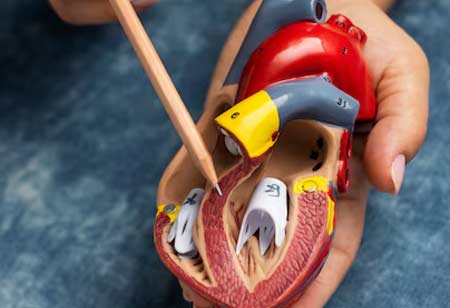Chronic Liver Disease and Cirrhosis: Understanding the Effects, Symptoms and Treatment
Chronic liver disease and cirrhosis are formidable health challenges, profoundly affecting the liver's structure and function over time. Chronic liver disease encompasses various conditions,

By
Medical Care Review | Wednesday, June 19, 2024
Stay on top of your health and well-being with exclusive feature stories on the top medical clinics and treatment centers, expert insights and the latest news delivered straight to your inbox. Subscribe today.
Chronic liver disease and cirrhosis are formidable health challenges, profoundly affecting the liver's structure and function over time. Chronic liver disease encompasses various conditions, including hepatitis B and C infections, non-alcoholic fatty liver disease (NAFLD), alcoholic liver disease (ALD), autoimmune hepatitis, and genetic disorders like hemochromatosis.
Cirrhosis represents the advanced stage of chronic liver disease, characterized by the gradual replacement of healthy liver tissue with fibrous scar tissue, ultimately impairing liver function irreversibly. The leading causes of cirrhosis include chronic alcohol abuse, viral hepatitis infections, autoimmune diseases, and metabolic disorders.
Symptoms of chronic liver disease and cirrhosis may develop slowly and may not manifest until significant damage has occurred. Initial signs can include persistent fatigue, weakness, nausea, decreased appetite, and unintended weight loss. As cirrhosis progresses, symptoms may escalate to include jaundice (yellowing of the skin and eyes), abdominal swelling (ascites), easy bruising and bleeding, persistent itching, and cognitive impairment (hepatic encephalopathy).
Diagnosis involves a comprehensive evaluation, including a detailed medical history, physical examination, blood tests to assess liver function and detect specific markers or viruses, imaging studies (such as ultrasound or CT scan), and occasionally a liver biopsy to confirm the presence and severity of cirrhosis.
Treatment strategies aim to manage symptoms, slow disease progression, and address underlying causes. Depending on the individual's condition and its severity, treatment may involve lifestyle adjustments (such as abstaining from alcohol and adopting a balanced diet), medications to alleviate complications (such as diuretics for ascites), antiviral therapy for viral hepatitis, and in advanced cases, liver transplantation.
Preventive measures include vaccination against hepatitis B, limiting alcohol consumption, maintaining a healthy weight, and managing conditions like diabetes and high cholesterol effectively.
In summary, managing chronic liver disease and cirrhosis requires early detection, personalized treatment plans, and ongoing medical supervision to preserve liver function and enhance overall quality of life. With proactive healthcare and lifestyle modifications, individuals can navigate these complex conditions effectively and maintain optimal liver health.







